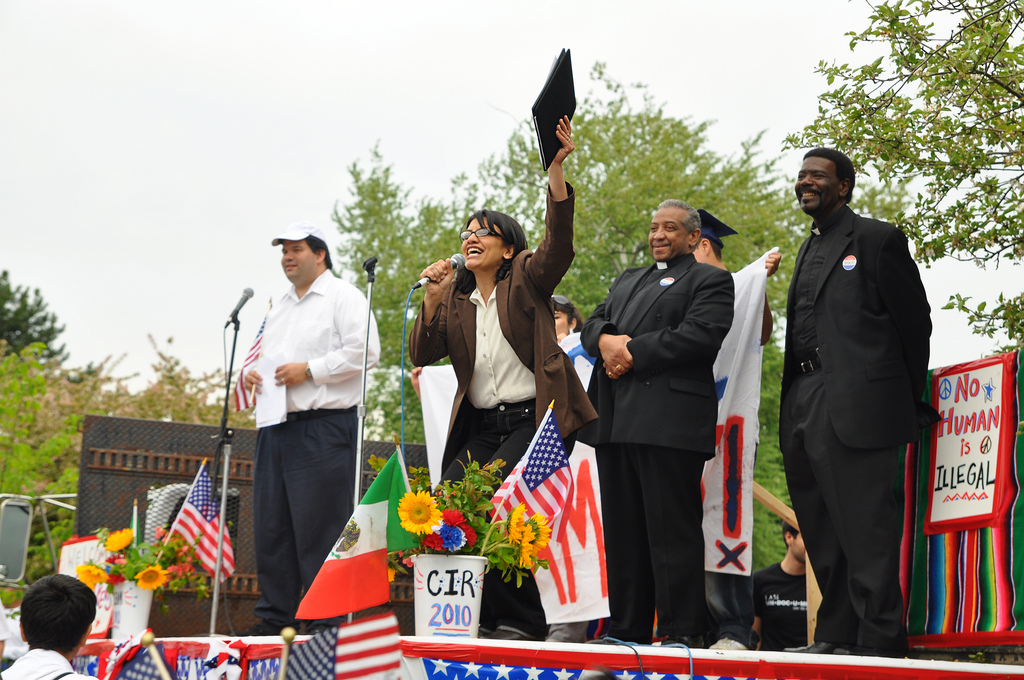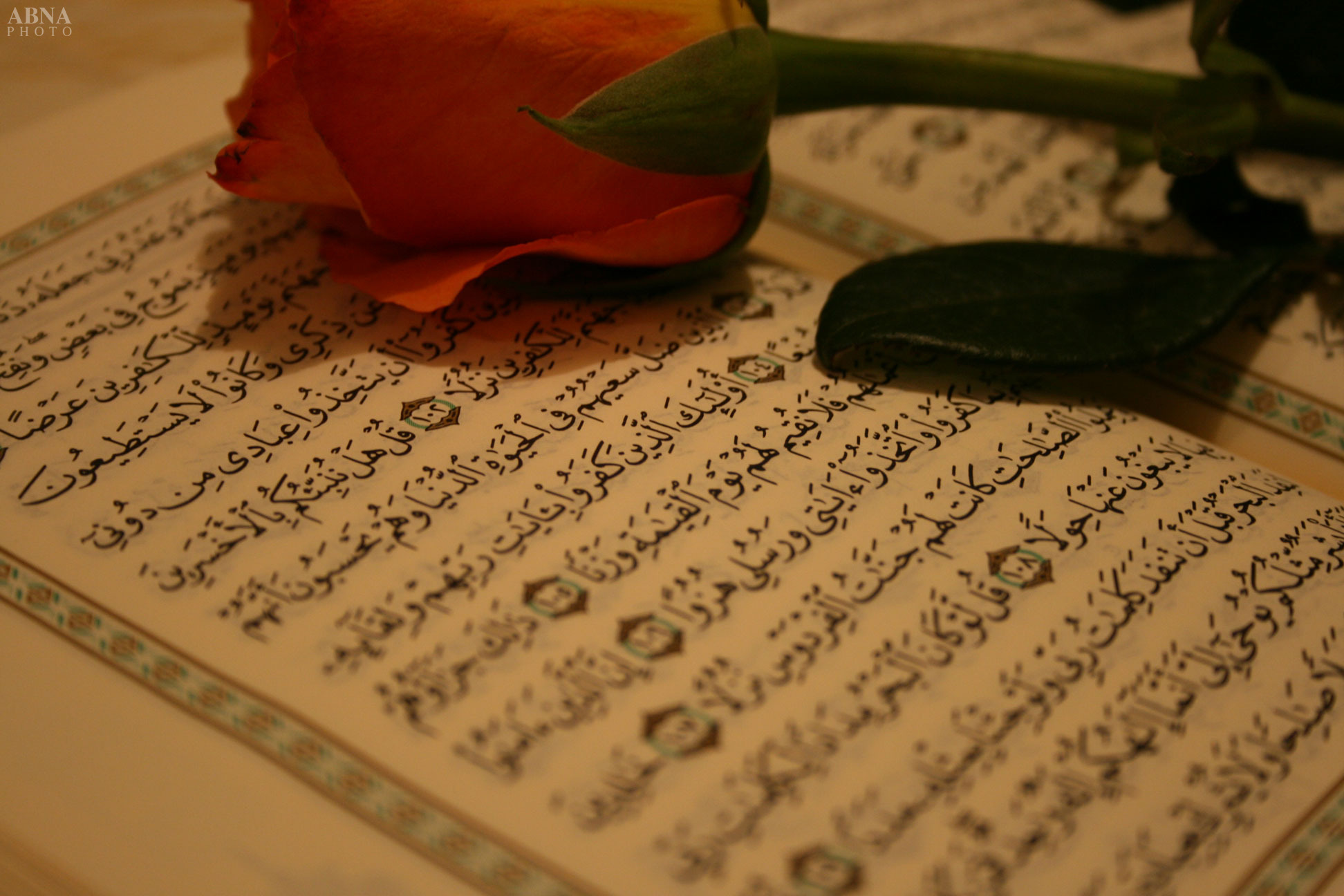Why does Valentine’s Day spark such contentious debate among American Muslims across blogs and social networking sites? What underlying emotional buttons does this commercialized cultural holiday push among American Muslims? While other holidays, such as Mother’s Day and Father’s Day, generate a few tired and tepid discussions centered around the idea that “everyday should be Mother’s and Father’s Day,” Valentine’s Day, like the very concept of romantic love it celebrates, generates much more passionate responses. These debates touch on many topics including what love means or should mean to Muslims, the relationship between culture and religion, and the current state of romantic relationships among Muslims.
Why does Valentine’s Day spark such contentious debate among American Muslims across blogs and social networking sites? Which underlying emotional buttons are being pushed by what is simply another commercialized cultural holiday among many? While other holidays such as Mother’s Day and Father’s Day generate a few tired and tepid discussions centered on the idea that “everyday should be Mother’s and Father’s Day,” Valentine’s Day, like the very concept of romantic love it celebrates, generates much more passionate responses. These debates touch briefly on many topics such as what love means in Islam, the interchange between culture and religion, and the current state of romantic relationships among Muslims. However, rather than probe these important issues more deeply, people get ensnared in simplistic arguments that stunt real progress. Perhaps by refocusing our V-day debates on the larger nuanced issues we can more effectively address the deep-seated emotional tension that this controversial holiday raises year after year.
Yet again this year, the debates began when some Muslims denounced the holiday both from a religious angle, by calling it a bid’a (innovation), and from a more oft-used secular angle, by claiming it is nothing more than a capitalistic ploy to urge people to spend money. While these simplistic and provocative points did not in and of themselves encourage fruitful discussion, they did incite Muslims from across the religious spectrum to respond. Others argued back that Muslims could use more love in their lives, so if an admittedly silly holiday could serve as a reminder, where’s the harm? This rebuttal leads into the complex issue of the status of love among Muslims. With the media’s constant bombardment of stories on terrorism, “honor” killings, child marriages, domestic violence, female genital mutilation, angry riots, and unrelenting warfare, it comes as no surprise that even we Muslims are left wondering, “Where’s the love?” In contrast to this skewed perception of a hateful Muslim ummah, many of us do in fact experience a great deal of love among our families and friends. However, no matter how far removed we are from the brutal realities of violence and hate in the Muslim world, these problems continue to cast gloom over our lives. Therefore, many Muslims embrace and encourage Valentine’s Day as one among many ways to increase the presence and celebration of love in the Muslim community and counter the images of hate that engulf us.
The counter-argument follows that we Muslims need to define love for ourselves, rather than allow it to be adulterated by a Western holiday, particularly since the Western concept of romantic love often offends Muslim sensibilities. Yet a quick look at Muslim history shows numerous examples of Muslims appropriating the holidays and traditions of a new host culture so that they fit naturally within the paradigm of Islam. Some may worry that using an established secular tradition compromises the integrity of our faith, yet there is wisdom behind this approach. In his article titled “The Cultural Imperative,” Dr. Umar Faruq Abdullah argues that people harbor intense emotional connections to their cultural traditions. Therefore, by capitalizing on what has already taken root in the hearts in minds of the people, a hybrid tradition that unites faith with culture is far more powerful than one that exists outside of established cultural norms. In other words, we can use Valentine’s Day to remind us (because indeed we humans are forgetful creatures!) to appreciate and cherish our spouses, families, friends, and our love for God, and in the process feel like we’re part of a greater American effort to increase expressions of love in our lives.
Rather than respond with the aversion that many modern Muslims feel towards certain cultures, past Muslims embraced culture as an important part of life, provided it did not inherently go against Islamic teachings. This approach did not imply that culture should be equated with religion, but rather it acknowledged that both culture and religion are significant aspects of the human experience that inevitably inform one another. By ridding ourselves of the irrational fears we have towards embracing the very culture we are a part of–American culture–Muslims can capitalize on the good it offers, rather than throw the proverbial baby out with the backwater.
For some Muslims, appropriating Valentine’s Day may mean remembering and cherishing their love for the Divine, or remembering that their love for their sisters and brothers is enveloped in their ultimate Love for God. To other Muslims, it may mean celebrating the love and mercy God has bestowed on their marriages. Whichever individuals prefer, there is only deeper love to be gained. In fact, Muslims have already begun to make tremendous use of this day to fight against domestic violence in memory of our dearly departed sister, Aasiya Zubair. What better way to fight against domestic violence than to remind each other that we must constantly strive to increase the love and mercy in our families?
Some Muslims may disagree altogether with the concept of appropriating a secular cultural holiday, which is understandable if they feel it jars their faith. Others may prefer to leave religion out of the discussion altogether and appreciate V-Day purely as a cultural tradition. To each his/her own. Yet for those who wish to reconcile their daily cultural experiences with their faith, we need not dismiss this holiday as inherently distancing us from Islam, or limiting us to expressing love only once a year. Reminders are a necessary part of the human experience, and therefore holidays like Valentine’s, Father’s, and Mother’s Days can serve to remind us to strive for deeper love of the Divine and those closest to us.
Sarah Rashid graduated from the University of Pennsylvania and currently resides in New York City, where she works in fashion design.




